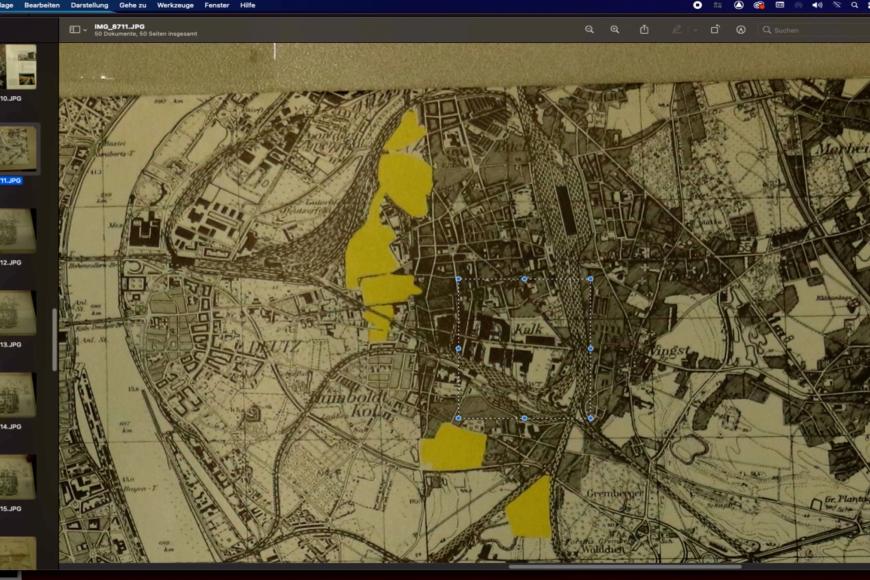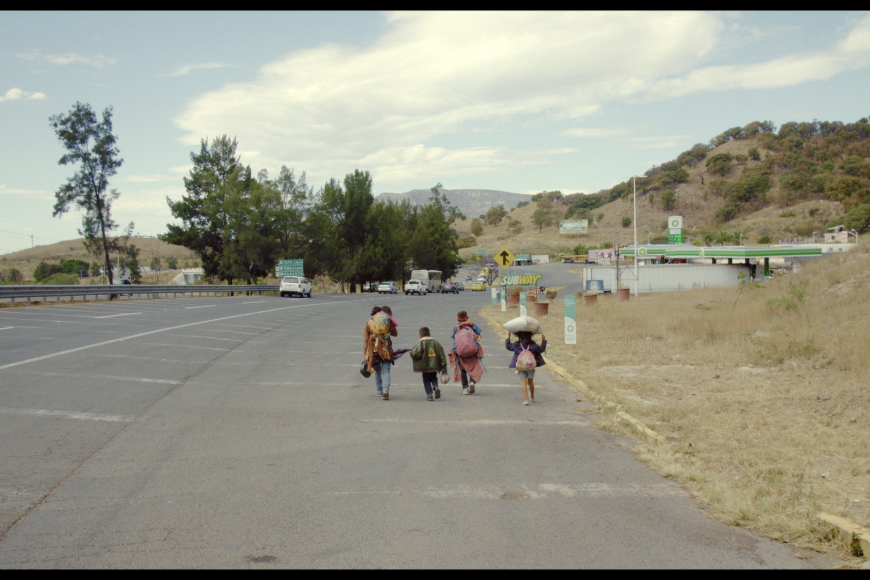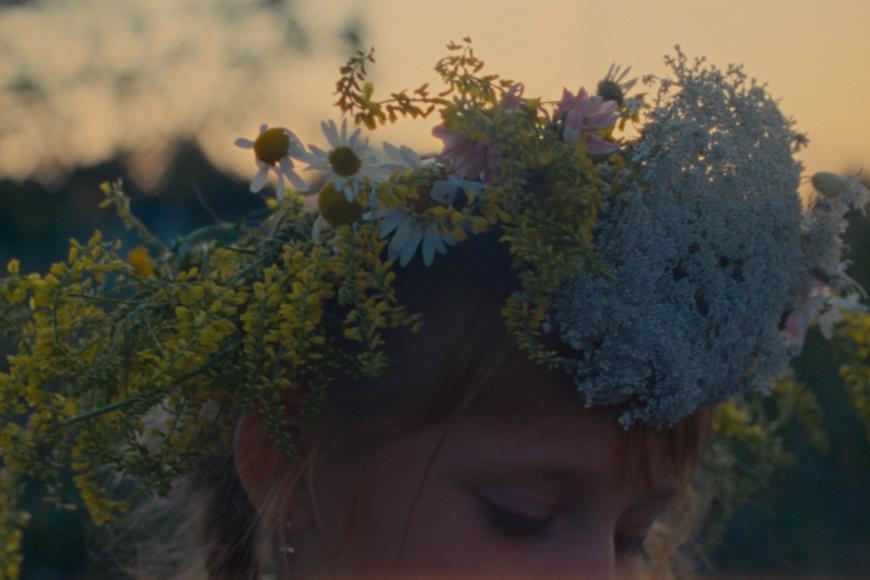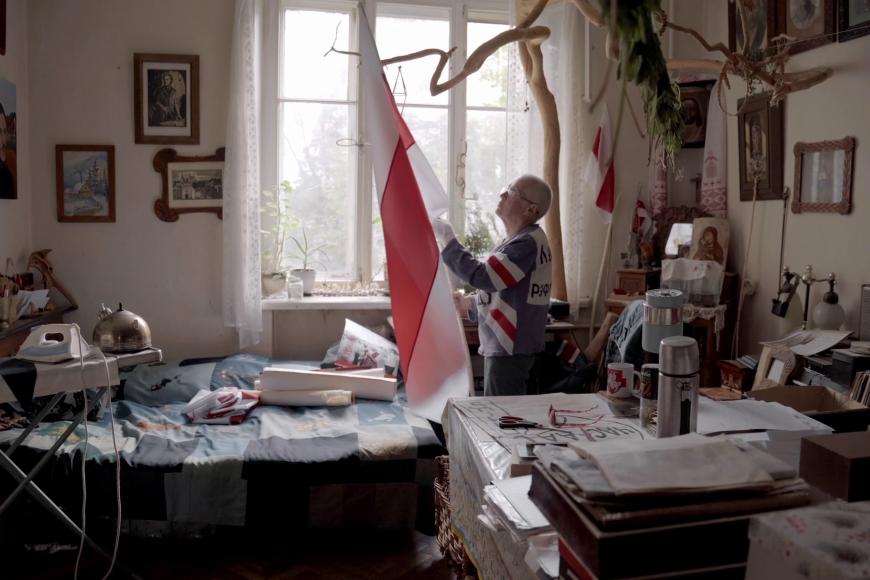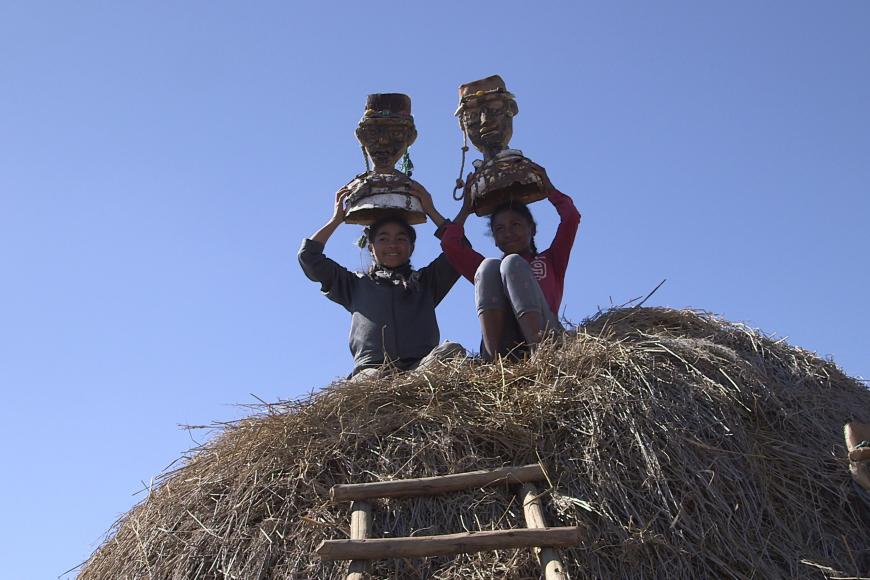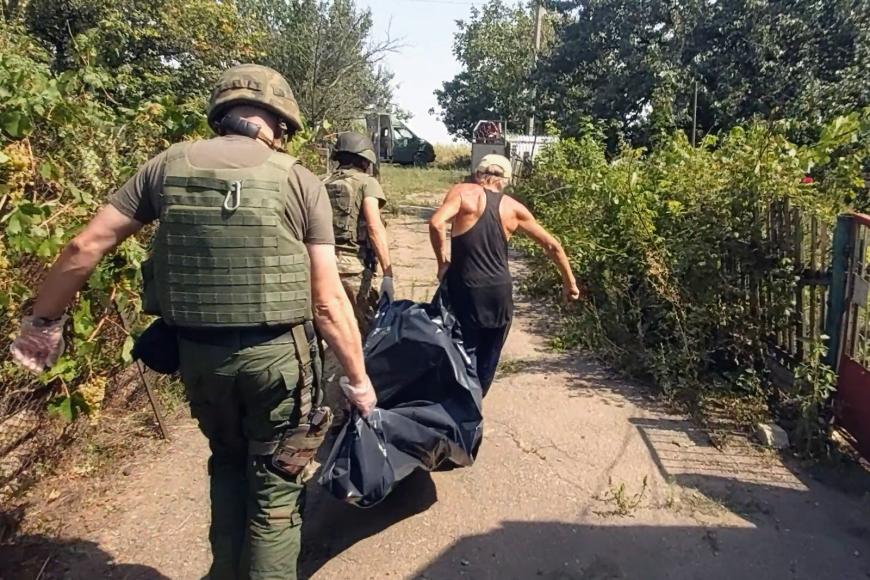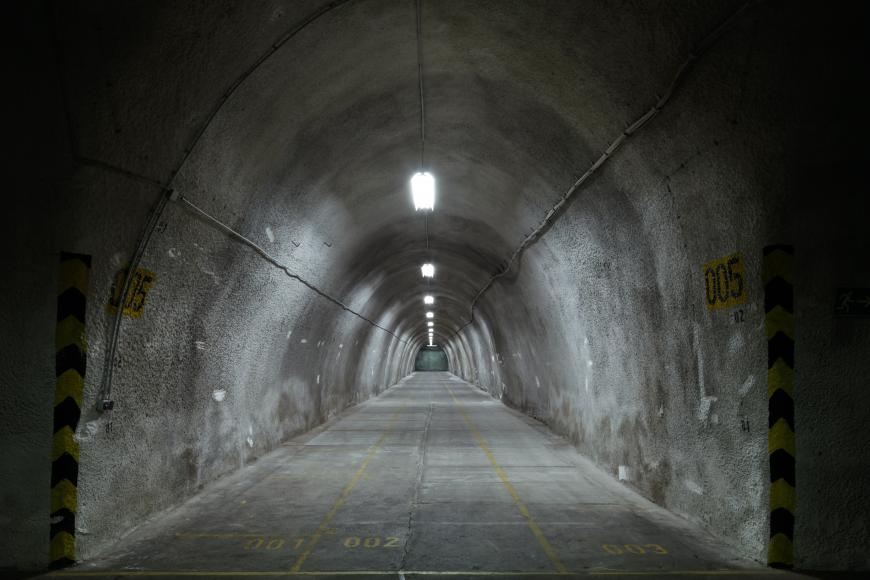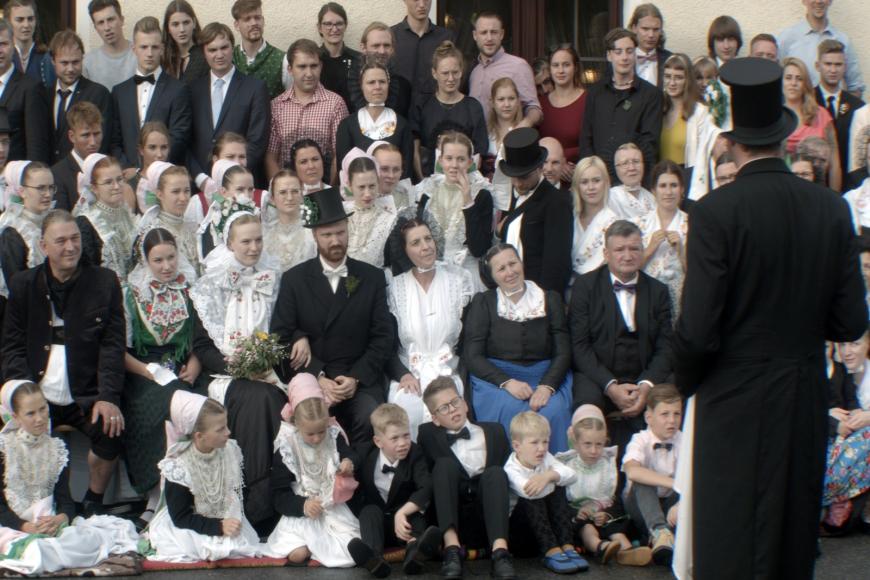
We Call Her Hanka
A green lawn like an unused carpet, encircled by a neat forest edge, in the background the steaming cooling towers of a coal power station – impressionistic camera images from Lusatia. They summarise in one pan how a used-up utilitarian landscape is trying to recultivate itself. Can ancient identity and language be re-discovered amid this strange artificiality? The director travelled through this region in search of her origins. She was born here, in Lusatia. This is her home and that of the smallest of all Slavic peoples: the Sorbs.
She thinks about the assimilation of this cultural and linguistic community with the indigenous people, about its history of oppression in the various German systems, about a region caught up in structural change and the identity-shaping power of words – even if one has to learn them anew first. She meets a German Anna who becomes a Sorbian Hanka. She encounters people dedicated to preserving the traditions. The younger folks especially see their Sorbian-ness as a commitment to a community spirit, if not – like the artist, Hella – as an alternative way of life. Accompanied by old and new Sorbian sounds, along the filmmaker’s offscreen reflections, the many-voiced portrait of a nation within the nation emerges who reclaims its culture out of the local museums back into its everyday life.

